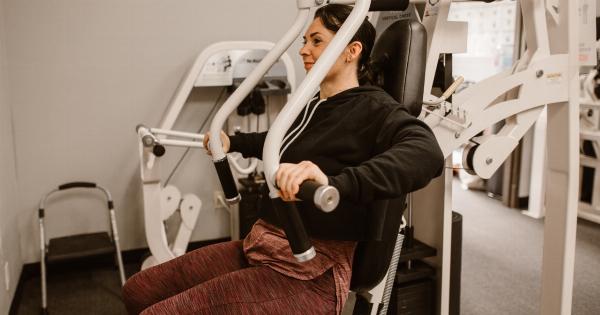Undergoing surgery can be a daunting experience for most people. It’s important to have all your questions answered by your surgeon prior to the operation to put your mind at ease.
Here are the top 30 questions to ask your surgeon before undergoing surgery:.
Pre-Surgery Questions
1. What kind of anesthesia will be used?
It’s important to know what type of anesthesia will be used during your surgery and what the potential side effects might be. It’s also important to know how long the effects of the anesthesia will last.
2. What kind of preparation will be necessary before surgery?
Your surgeon may have specific instructions for you to follow before the surgery, such as dietary restrictions or recommended medications.
3. How long will the surgery take?
Knowing the approximate length of your surgery can help you plan your day better and prepare any caregivers or support people who may be helping you during your recovery.
4. What are the expected results of the surgery?
Your surgeon should be able to give you a general idea of what to expect from the surgery in terms of long-term results, pain relief, and any other expectations you might have.
5. What are the potential risks and complications of the surgery?
It’s important to know what risks and complications could arise during or after the surgery so that you can make an informed decision about whether or not to proceed with the operation.
6. Will I need to be hospitalized after the surgery?
Depending on the type of surgery you are having, you may need to stay in the hospital for a period of time while you recover.
It’s important to know how long you can expect to be in the hospital and what kind of care you will need during that time.
7. What kind of post-operative care will be necessary?
Your surgeon should be able to give you instructions for post-operative care, such as how to care for your incision or wound, recommended activities to avoid during recovery, and any medications you may need to take.
8. What kind of pain management options will be available during recovery?
Pain management during recovery is important to discuss with your surgeon. This can include medications, physical therapy, or other types of treatment.
Surgical Procedure Questions
9. What is the specific surgical procedure that will be performed?
It’s important to have a clear understanding of what the surgical procedure entails in order to prepare mentally, emotionally, and physically.
10. How long will the surgical procedure take?
Knowing the estimated length of your surgical procedure can help you plan your day better and prepare any caregivers or support people who may be helping you during your recovery.
11. What type of incision will be made?
Your surgeon should be able to explain the type of incision that will be made during the surgical procedure and what the potential risks and benefits are of the chosen incision type.
12. Will any medical devices be implanted?
Some surgical procedures require the implantation of medical devices such as prosthetics or pacemakers. It’s important to know if this may be necessary for your particular surgery.
13. Will I be awake during the surgery?
Some surgeries may require you to be awake during the procedure. If this is the case, your surgeon should explain what to expect and how to prepare.
14. Will I need to go back for additional surgical procedures?
Some surgeries may require multiple procedures or surgeries over time. It’s important to know if this may be necessary for your particular surgery.
15. What happens if complications occur during the surgery?
Your surgeon should be able to explain what will happen if complications occur during your surgery and what steps will be taken to address any issues that may arise.
16. Can I speak with someone who has had the same surgical procedure before?
If you are feeling nervous or uncertain about the surgical procedure, your surgeon may be able to connect you with someone who has had the same surgery before so you can ask questions and learn from their experience.
Surgeon Qualifications Questions
17. What are your qualifications and experience?
It’s important to know your surgeon’s qualifications and experience in performing the particular surgical procedure you will be having and ask questions about their experience with this specific surgery.
18. Are you board-certified?
Board certification proves that your surgeon has met the high standards of a national organization in their specialty. It’s important to know if your surgeon is board-certified.
19. Have you performed this surgery before?
You may want to know how frequently your surgeon has performed the particular surgical procedure you will be having, or whether there are any other medical professionals involved in the surgery.
20. How will you ensure my safety during the surgery?
Knowing your surgeon’s safety procedures can reassure you and improve your trust in them. It’s crucial to ensure that proper safety protocols are in place during the surgery.
21. What happens if complications arise during or after the surgery?
Your surgeon should be able to explain what will happen if complications arise during or after the surgery and what steps will be taken to minimize any risks.
Recovery Questions
22. How long is the recovery period?
Knowing the estimated recovery time can help you plan for work, childcare or other commitments that may be impacted after the surgery.
23. What kind of restrictions will I have during recovery?
It’s important to know what you can and cannot do during recovery, such as when it’s safe to return to work or other physical activities.
24. When can I expect to resume normal activities?
Your surgeon should be able to give you an idea of when you can expect to resume normal activities, such as work, exercise, and driving.
25. Will I need any rehabilitation or physical therapy?
Depending on the type of surgery you have, you may need rehabilitation or physical therapy during recovery. Your surgeon can give you more information on what to expect.
26. What kind of follow-up appointments will I need?
Your surgeon should be able to give you instructions on any follow-up appointments necessary for post-operative care and monitoring of your recovery.
27. Are there any potential long-term effects of the surgery?
Your surgeon should be able to explain any potential long-term effects of your surgery, such as scarring or reduced mobility, so that you can make an informed decision about whether or not to proceed with the surgery.
Cost and Insurance Questions
28. What will the surgery cost?
It’s important to know the estimated cost of surgery, including any associated fees such as anesthesia, hospital stay, and post-operative care.
29. Will my insurance cover the cost of the surgery?
Your surgeon should be able to advise on whether your insurance will cover the cost of your surgery and what steps to take to ensure that your insurance policy is up-to-date.
30. Are there any financing options available?
If you are concerned about the cost of surgery, your surgeon may be able to provide information on financing or payment plans that could help alleviate the financial burden.































